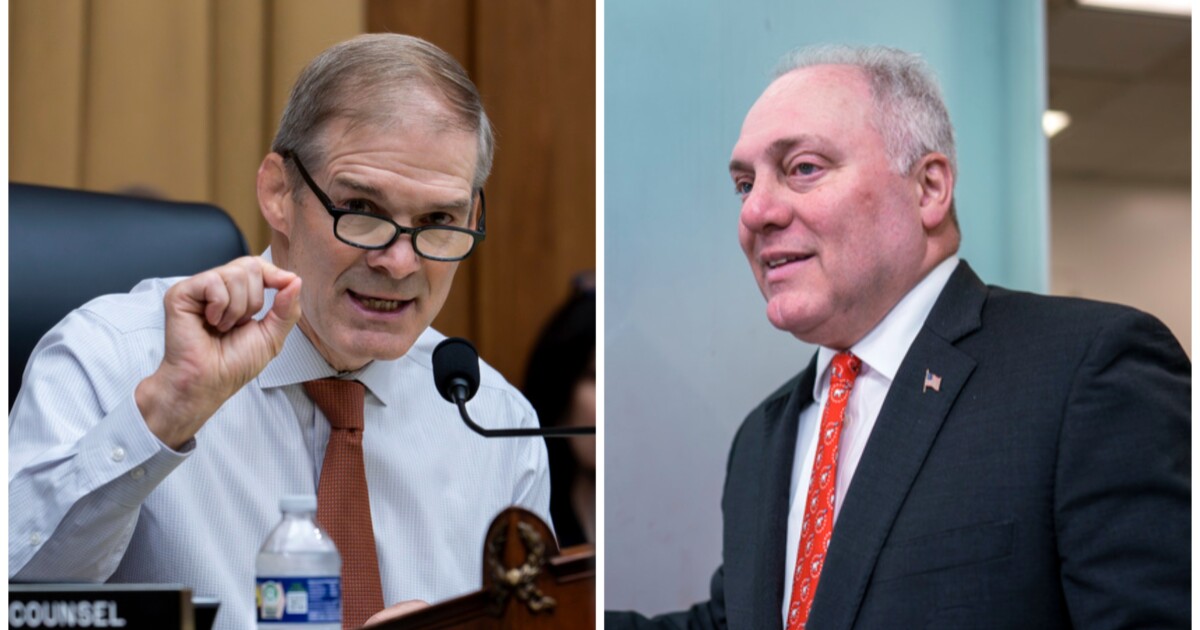

The change in speaker of the House could lead to a stronger push in Congress to rein in Big Tech and to guard against censorship of conservatives.
There are two leading candidates in the race to replace Rep. Kevin McCarthy (R-CA) as House speaker: Rep. Jim Jordan (R-OH), who chairs the Judiciary Committee, and House Majority Leader Steve Scalise (R-LA). Both have evinced a stronger desire to take legislative action against Big Tech than McCarthy did in his short term.
BIDEN ADMINISTRATION OUTLINES RULES FOR INSTANT EV REBATES TO BOOST SALES
Here is where the leading House speaker candidates stand on technology policy issues.
Scalise and Jordan’s commonalities
Both Scalise and Jordan are skeptical of the Federal Trade Commission under Chairwoman Lina Khan, a noted critic of Big Tech companies like Amazon and a proponent of “hipster antitrust” — a school of thought that abandons the consumer welfare standard that guided U.S. antitrust policy for decades in favor of a much more skeptical approach that also considers other factors, such as corporate concentration and income inequality.
On the issue of censorship, though, the two have signaled a more skeptical approach toward Big Tech, appearing at hearings to grill the CEOs of Twitter, Facebook, and Google.
Both also support the reform of Section 230, a section of the Communications Act that protects websites from being held accountable for what third parties post onto the platform. They criticize it as a tool used to protect Big Tech companies from being held accountable for their content moderation choices.
Scalise and Jordan’s differences
Scalise has made a name for himself through privacy and telecom-oriented legislation. For example, he introduced a bill in 2022 that would require smart device makers to notify customers when they are being recorded. He has also collaborated with Energy and Commerce Committee Chairwoman Cathy McMorris Rodgers (R-WA) on her “Big Tech Accountability Platform,” which focuses on privacy practices and content moderation. He also introduced draft legislation demanding more transparent app store policies.
Jordan, in contrast, has used his position as Judiciary Committee chairman to pressure Big Tech companies over communications between their offices and federal agencies to see if the government encouraged censorship of COVID-19-related content. His focus has been more on speech than it has been on antitrust or company size.
In fact, Jordan at times has been at odds with conservatives in the House GOP conference who favor breaking up Big Tech companies because of their content moderation policies. He opposed the antitrust efforts of Big Tech critic Rep. Ken Buck (R-CO). Jordan promoted the libertarian Rep. Thomas Massie (R-KY) over Buck to lead the Judiciary Committee’s antitrust subcommittee.
Alternative options
Scalise and Jordan are thought to be the most likely options for speaker, but other possibilities have been suggested. Former President Donald Trump has been proposed as an option by Rep. Marjorie Taylor Greene (R-GA). While Trump has declined to accept the role, he would be quite the Big Tech critic if he won. Trump has called for Section 230 to be removed for several years. He has advocated the United States to hold Big Tech companies responsible, rather than Europe. And he also threatened penalties against social media companies if they were found banning or limiting speech.
Rep. Kevin Hern (R-OK), the current head of the Republican Study Committee, a group of conservative House Republicans, is also thought to be in the running to replace McCarthy, but he has not spent much time on technology policy. He released a statement in 2020 attacking Democrats for a 16-month investigation into digital platforms.
CLICK HERE TO READ MORE FROM THE WASHINGTON EXAMINER
McCarthy’s legacy on tech
McCarthy’s history with tech companies is best framed as “love-hate.” McCarthy made big promises at the start of his term that his actions would give Big Tech leadership a reason to pause. His “Commitment to America” plan released in January called for confronting Big Tech by repealing Section 230 and improving antitrust enforcement. Most of McCarthy’s efforts were driven by Jordan, who used his role in the Judiciary Committee to host hearings on the release of internal Twitter communications known as the “Twitter files,” challenge the FTC, and question officials about communications between tech companies and federal agencies.
At the same time, McCarthy has a close relationship with Big Tech companies that has drawn scrutiny from conservatives. Jeff Miller, one of McCarthy’s advisers, also represents Apple and Amazon. Two of his former staffers also became lobbyists for Big Tech companies. The California Republican has also received tens of thousands of dollars in donations from tech companies.





